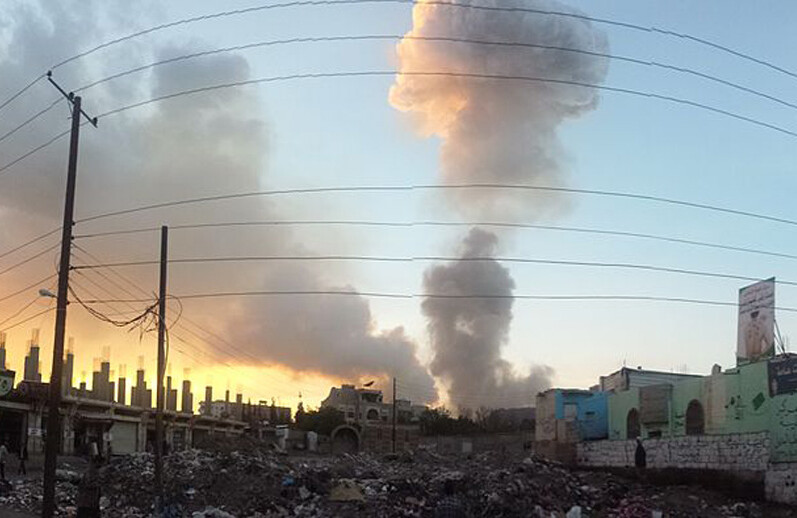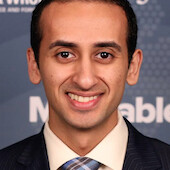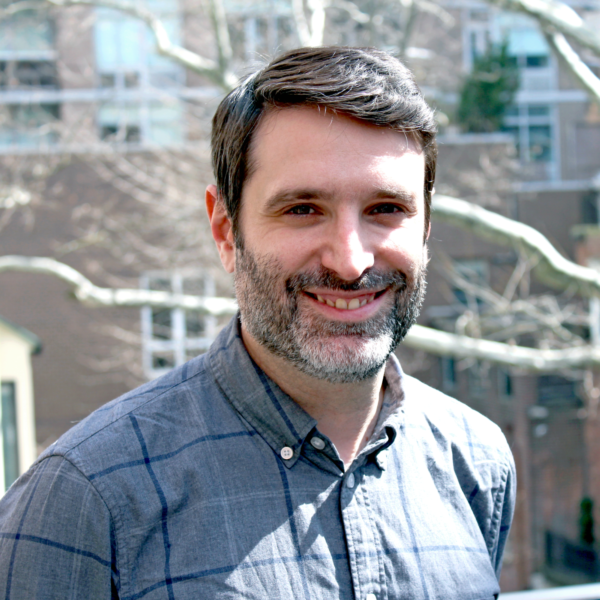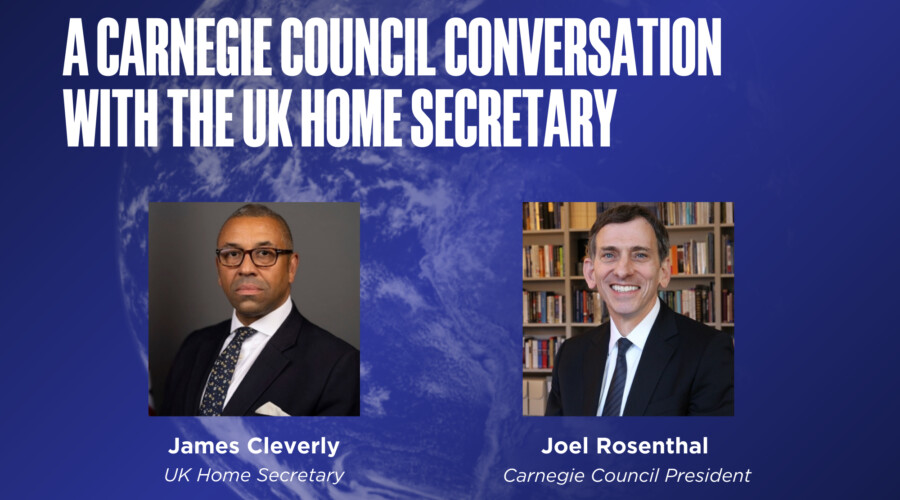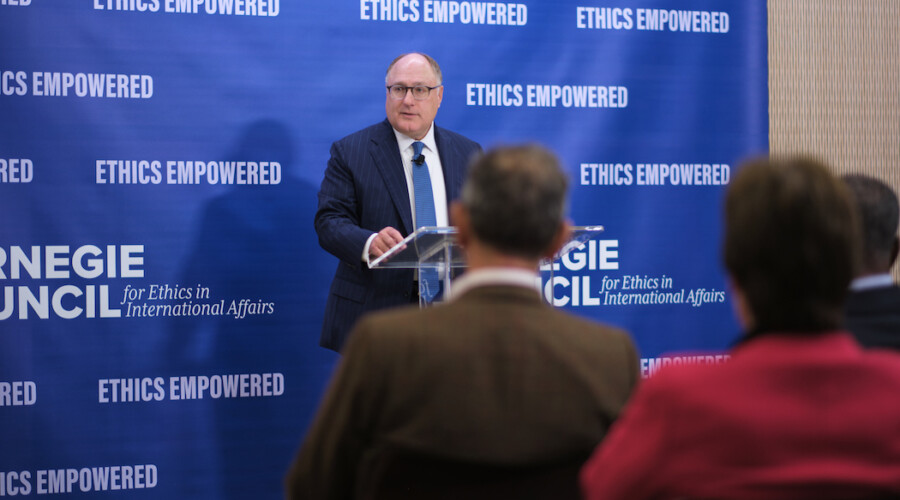Waleed Alhariri of the Sana'a Center for Strategic Studies discusses the Center's new report on U.S. covert attacks against al Qaeda and other radical groups in Pakistan, Somalia, and Yemen. He then focuses on Yemen, a nation suffering from internal conflict, intervention by a Saudi-led coalition, and a cholera epidemic. Humanitarian assistance is sorely needed, says Alhariri and explains what the general public can do to help.
ALEX WOODSON: Welcome to the Carnegie New Leaders podcast. I'm Alex Woodson. Today I'm joined by Waleed Alhariri. Waleed heads the New York office of the Sana'a Center for Strategic Studies (SCSS) and is a fellow-in-residence at Columbia Law School Human Rights Institute.
Thanks for coming, Waleed.
WALEED ALHARIRI: Thank you for having me.
ALEX WOODSON: We will discuss the crisis in Yemen in detail a little later on, but first I want to talk about a new report from the Sana'a Center for Strategic Studies and Columbia Law School Human Rights Institute. This report was released last week and is entitled, "Out of the Shadows: Recommendations to Advance Transparency in the Use of Lethal Force." It is a review of the extent of U.S. secrecy and transparency about drone strikes and lethal operations in Pakistan, Somalia, and Yemen from 2002 to 2017. I'll just read the first line from the executive summary: "The U.S. government must take urgent steps to account for the hundreds of reported civilian deaths it has caused over more than a decade in Pakistan, Somalia, and Yemen."
Just to start the discussion, why does the United States need to take these urgent steps to be accountable for military action? What is at stake?
WALEED ALHARIRI: What's at stake are multiple things: one of them is specifically related to the civilian deaths that have been as a result of the use of lethal force by the United States in countries primarily outside of traditional conflict zones; this is Yemen, Somalia, and Pakistan.
We studied for a period of 15 years, and we found that the United States has only acknowledged about 20 percent of its use of lethal force in these countries. These military operations, specifically the drone strikes, have resulted in civilian deaths. The United States has not acknowledged them; it has not allowed any investigations into many of them, with the exception of when it came to the death of Western civilians. There was an incident in Pakistan where an Italian citizen, as well as two U.S. citizens, were killed. President Barack Obama came out and acknowledged the strike and the mistake, and the U.S. government gave compensation to the families.
Other families in other countries who compose the majority of those civilians also have a right to know why they have been targeted. They have a right to legal procedures as well as compensation for their suffering, and the United States has been very secretive about this program. The U.S. public as well has not been aware of the negative impacts that result from these airstrikes.
ALEX WOODSON: Specifically, can you talk about what the negative impact is and why this can be harmful to the United States?
WALEED ALHARIRI: These countries—Somalia, Pakistan, and Yemen—there are communities where al Qaeda was born and radicalism is easy to flourish because of many rooted conditions related to poverty, unemployment, and the absence of a state. The United States has been limiting its approach to some of these areas that pose danger to the communities in these countries and to the outside of Yemen through only the use of lethal force. Even when they use force in these communities there are many mistakes because there is lack of intelligence and lack of accountability from the side of the United States.
Many civilian deaths have resulted in anger and frustration. Also, the lack of acknowledgement of these mistakes has resulted in al Qaeda groups and armed groups using this as propaganda to recruit against the United States. It is something that the United States has not been looking at and assessing very adequately and has not honest about how it has been conducting and not even looking into the consequences and negative effects of this.
ALEX WOODSON: The report states that transparency in these matters is required by binding international law, and international law requires governments to report their use of force in self-defense to the UN Security Council. Has this been happening? Has the United States been doing this?
WALEED ALHARIRI: Yes, international law requires countries that use lethal force in self-defense to report to the UN Security Council under Chapter 7, Article 51, but the United States has not been doing so. Since 2010, specifically in Yemen and Somalia, the United States has been conducting these operations under the justification of self-defense, but there have not been reports—with one exception, when the United States carried out strikes on the Houthi militia groups in October 2016 in Yemen in response to some attacks to a U.S. naval ship. The United States submitted a letter to the UN Security Council saying, "We conducted this in response to the attacks by this militia group, and it is a limited approach."
But for other cases related to attacks against al Qaeda or other armed groups, the United States has not been acknowledging or giving the international community the legal basis or justifications for this conduct.
ALEX WOODSON: When the United States doesn't report this, there is not much recourse, right? There is not much the UN Security Council can really do about it.
WALEED ALHARIRI: The UN Security Council is run by five permanent countries, and the United States is one of them. Any resolution for action to stop the United States or require the United States to do anything will come under the use of a veto by the United States or any Member States from the Big Five, so it is very difficult for the UN Security Council to push for any accountability, but it could encourage this.
Outside of the UN Security Council there could be some room for holding the United States accountable or pushing the United States to be more transparent. But under international law it is clear that the United States has a legal obligation to be transparent and report on the use of lethal force in other countries, specifically when it involves dealing with citizens of other countries.
ALEX WOODSON: When drone strikes are discussed, and as your report also discusses, Pakistan, Somalia, and Yemen are usually grouped together. Obviously each state has its own situation. Since your focus is on Yemen at the Sana'a Center for Strategic Studies, what does the situation look like in Yemen? How is it different from Pakistan and Somalia?
WALEED ALHARIRI: Yemen is a special case since the United States has for many decades looked at Yemen as a source of threat, unlike its neighbors, where the United States goes and makes billions of deals in economic development and even arms deals. The United States has been limiting all their engagement to Yemen through a security lens. This has been unproductive, as we have seen.
Al Qaeda also is present in Yemen. Some other armed groups are present. But at the current moment Yemen is going through a conflict internally, and there is an outside intervention by a Saudi-led coalition; 80 percent of the people in Yemen are in a dire humanitarian situation; they need some form of humanitarian assistance. There have been over 10,000 people killed during this current conflict, and over 40,000 injured. The United Nations has been calling for all warring parties to stop and to deescalate.
So far, the United States has been providing technical and intelligence support to the Saudi-led coalition as well as arms deals, which provide them with precision-guided weapons, which have been used by the Saudis in violation sometimes of international human rights law when it comes to targeting some civilian areas and using cluster munitions, which are prohibited by international law.
ALEX WOODSON: I think we're far enough into the Trump Administration that we can generally see what their policies are in a lot of different foreign policy situations. How has the strategy toward Yemen changed under Trump?
WALEED ALHARIRI: There has not been any significant change under Trump. If we look at it as an extension of the Obama Administration policies, the only difference is that the Trump Administration does not have an appetite to explore any nonmilitary forms of engagement with Yemen. If you look at the recent administration's budget, it cuts a lot on foreign diplomacy and cuts a lot of the budget on humanitarian assistance and increases defense spending. You could see how U.S. policymakers are failing to grasp and look into the realities and how that will implicate in other countries.
We also have seen a terrible amount of drone strikes in Yemen, more U.S. ground operations in Yemen, and many of them have also resulted in civilian deaths. The civilian deaths have not been acknowledged and have not even been taken into consideration for investigation except for the recent raid in January just one week after Trump took office. The people are waiting in Yemen for answers: "Why is the United States targeting us like this? We need justice; we need dignity; we need respect for our lives." That is the minimal thing they could demand.
ALEX WOODSON: It sounds like you're saying that even though drone strikes and military operations have increased, it is really not a change in policy; it is just a continuation of the policy that Obama started and that Trump is following. Is that accurate to say?
WALEED ALHARIRI: Correct, yes. The first drone strike took place in Yemen in 2002 under Bush. Obama actually increased the number of drone strikes in Yemen. Trump came in and tripled the amount of drone strikes.
What we see is that there is a lack of political leadership to help push for a diplomatic solution to the conflict in Yemen. There is more commitment for arms sales, more commitment of the use of lethal force to address the threat of al Qaeda members in Yemen.
So far we have not seen any significant improvements in counterterrorism in Yemen; actually it is becoming more counterproductive. Over ten years the results have been obvious, that al Qaeda now is stronger than before, and you question the U.S. policy in Yemen.
ALEX WOODSON: Did Trump's visit to Saudi Arabia have any real effect on Yemen, more than just being publicity for the Trump Administration and for the Saudi royal family? I know there has been a lot of discussion about the arms deals, whether they are new arms deals or not. In your view, in terms of Yemen, did that trip have any real practical, tangible impact on the conflict?
WALEED ALHARIRI: The Yemeni people viewed the Trump visit with dismay. You are making deals that amount to over $300 billion with Saudi Arabia while the neighboring country is in a dire humanitarian situation. It is going through one of the largest humanitarian crises in the world. The United Nations has been calling for funds to respond to the general needs, which amounts to $2.1 billion. But so far, only 30 percent of this has been met. Coming into a neighboring country and brokering these deals sends a negative signal to the Yemenis.
Also, the Trump Administration's visit and focus on Saudi Arabia sends a signal to the Saudis: "We are behind the Saudis. Whatever the Saudis want, we will back you." The United States is outsourcing its foreign policy to the Saudis to deal with its neighbors.
This is not productive when dealing with complexities in the Arab region. What we see right now is that the Saudis feel emboldened to take harsher measures and more confrontation activities, and this also has added to the recent tensions among the Gulf countries themselves, specifically when it comes to Qatar.
ALEX WOODSON: I was going to ask about that. How does that crisis fit into the conflict in Yemen?
WALEED ALHARIRI: Qatar has been a member of the Saudi-led coalition. Its engagement in Yemen has been restricted to sending 100 Qatari troops to defend the Saudi border. They have been paying the salaries for the diplomatic circle for the Yemeni government because the current government doesn't have the finances or resources; it is unstable.
It is minimal when it comes to its direct effect to Yemen, but this opens many questions. It will also be clear in the upcoming weeks and months of how that will be reflected in the region because right now the Saudis say that they are cutting their relations with the Qataris because the Qataris are funding extremist groups and are continuing their relations with Iran.
From what we are seeing right now, the Saudis will suffer more from the tension between them and Qatar than the Yemenis will suffer from the current diplomatic relations with Qatar.
ALEX WOODSON: Just to bring the discussion back to the United Nations, what has been the role of the UN Security Council in the wars in Yemen? What has been their role in the past, and what can they do? What would you like to see them do?
WALEED ALHARIRI: The UN Security Council could play an important role, but at the moment it doesn't have any tools to use given the politicized nature of the conflict in Yemen and how it is reflected within the Security Council. One of the Security Council Member States is Egypt, and Egypt is a member of the Saudi-led coalition. Other members in the Security Council are the United States and the United Kingdom, who currently sell arms to the Saudis. There are some reservations by Russia on some actions from the Security Council.
So you see, there are political tensions within the Security Council that paralyze it from taking any concrete steps or activities toward Yemen. Specifically, if you look at what they have done since 2015, they only have passed one Security Council resolution, 2216, unlike for other countries, for example Syria and Libya.
This month they released a presidential statement. It is not efficient enough and not directive enough. There needs to be a serious discussion about a new resolution, assessment of previous resolutions, and mainly pushing a diplomatic effort outside of the UN Security Council to pressure all other parties to the conflict, specifically in expanding the diplomatic group that has been formulated consisting of the United Arab Emirates (UAE), Saudi Arabia, the United Kingdom, the United States, and right now, Oman.
ALEX WOODSON: Just to tie it back to the report, now that it is out in the world, what's next? What is next for the Sana'a Center for Strategic Studies? Are there people in the government that you can talk to about these issues? Is there anyone that you have a dialogue with that you think might be helpful?
WALEED ALHARIRI: Yes. We usually conduct a lot of meetings with stakeholders here in the United States and in Europe, as well as in the region, and me directly with Yemeni officials. For this specific report, it has multiple dimensions. Specifically, if you look at the recommendations, they target U.S. policymakers—the government, the Central Intelligence Agency (CIA), Department of Defense (DoD), and other entities.
What we will do is we will meet with these targeted groups, discuss with them in a frank manner about these findings, and present them these recommendations. At the same time, one of the critical elements of this report is to inform the public about what the government has been missing, what has not been released, and what is its obligation under international law, and what is its obligation even under U.S. law and even the aspirations of U.S. citizens.
We will do a lot of meetings in D.C. We will do some public events; we would like to engage the public in this discussion, as well as in universities and think tanks. We will go possibly to some countries in Europe, where we see that unmanned aircraft are potentially a future machine that other countries may utilize— and some of them have been utilizing them in conducting military operations in other countries—go there and tell them, "Look at the missteps that have resulted from this current program, and these are the international legal obligations to which everyone should abide."
I hope that this report sparks critical discussion—even for policymakers and those inside the government—to see where are the gaps and how they could close them because so far from what we see it is very worrying.
ALEX WOODSON: You mentioned that one of the goals of the report is to educate the general public. One other thing that we haven't talked about is the fact that there is a huge cholera outbreak in Yemen. There are 124,000 cases, more than 900 deaths; just heartbreaking numbers.
I guess my question is: What can the general public do? If the government is not doing much, if the United Nations is not doing much, what can the general public do in the United States and abroad to help the situation?
WALEED ALHARIRI: Currently the United Nations, which is responding to the humanitarian situation in Yemen, is calling for $2.1 billion to respond to the 2017 action plan to respond to the humanitarian crisis. Only 30 percent of this goal has been met. There was a conference in Geneva in which countries committed about $1 billion. That has not been translated into actual funds.
There remains over $900 million that is urgently needed. The public could help in fundraising; they could help in funding the UN agencies that respond to these crises; they could even highlight these stories. For example, students in universities and the public in their social media sites, in blogs, share the news and urge their representatives to take action, to speak out, to highlight this situation. The more people know about it, the more ultimately people will give more attention to it.
Yemen has been underreported, and there have been a lot of lobbyists from warring parties who do not want the outside world to know what is going on in Yemen because they are currently directly involved and responsible for what is going on.
ALEX WOODSON: I guess that's about all I have for today. Anything else that you wanted to touch on that we didn't talk about?
WALEED ALHARIRI: I think this is it. Thank you.
ALEX WOODSON: Great. One of the big reasons that I wanted to do this podcast was to educate people about what's going on in Yemen, because as you said, it is very underreported. I'm hoping that your report and the Sana'a Center can really continue to make an impact.
WALEED ALHARIRI: Thank you for having me, and thank you for touching on this very important topic.
ALEX WOODSON: Thanks a lot. Waleed Alhariri, Carnegie New Leaders podcast, thank you very much. You can follow Waleed on Twitter @waleedalhariri. Thanks for listening.
